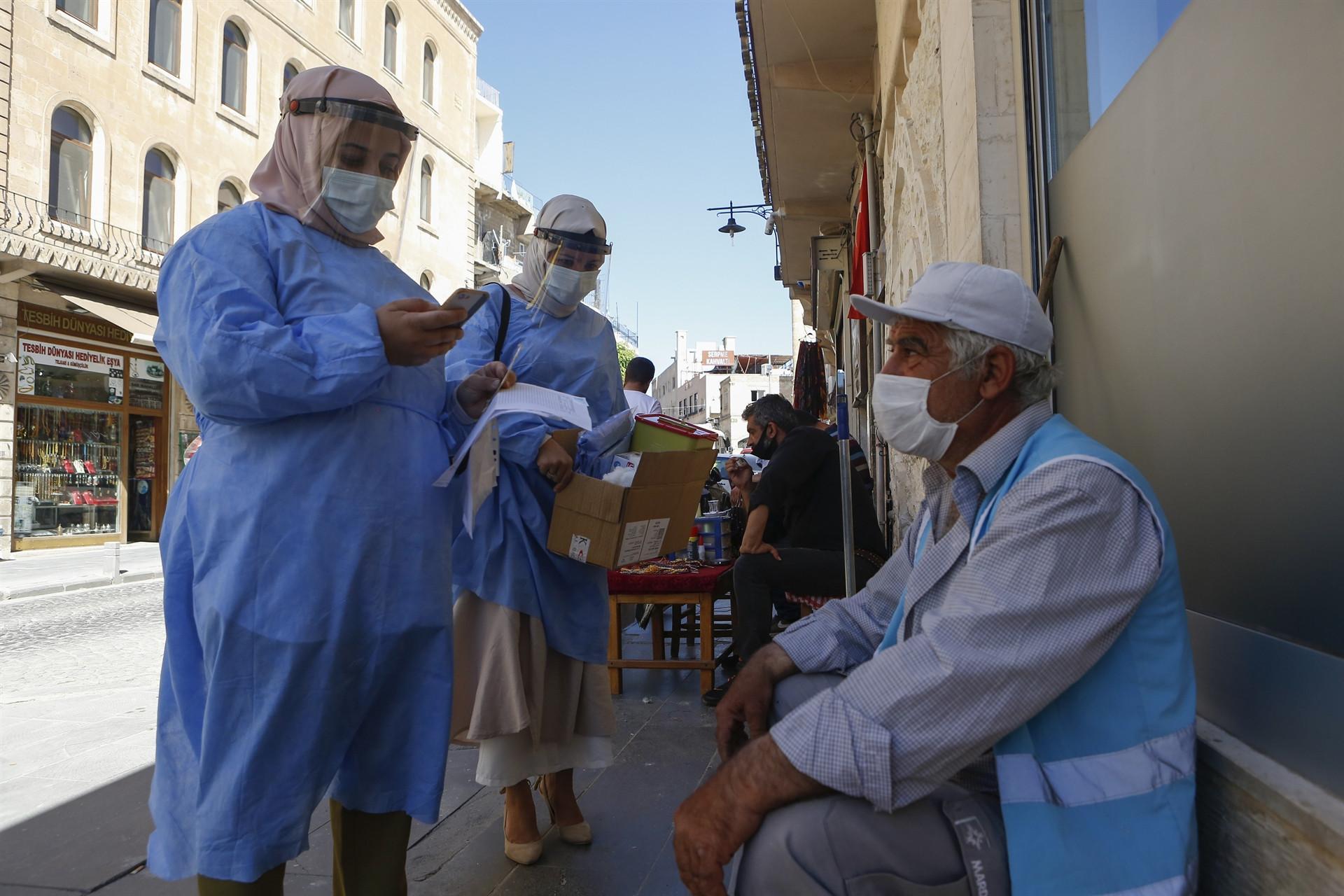
Authorities are concerned about growing vaccine hesitancy among people who have refused to get vaccinated even though their turn has come.
While experts say that the vaccination rate, which is considered to be indispensable in fight against the pandemic, is disappointing, an official has stated that the rate of those who do not get vaccinated in Istanbul is also high.
“We open vaccination appointments for 170,000 doses per day, but unfortunately 20,000-30,000 at most come to their appointments,” said Kemal Memişoğlu, the provincial health director of Istanbul.
Noting that the vaccination rate of people over the age of 65 is over 82 percent, Memişoğlu said that only 62 percent of those between the ages of 55 and 64 have been vaccinated so far.
“We need to increase this rate and encourage people to vaccinate,” he added.
As of May 26, more than 2.72 million people have received their first doses, while over 1.92 million have been fully vaccinated in Istanbul, a metropolis with an over 16 million population.
Speaking to daily Milliyet, health experts suggested that the age limit should be lowered rapidly in order to increase vaccination rates.
Tufan Tükek, the dean of Istanbul Medical Faculty Hospital, said that these rates are not acceptable and the reason why people do not want to get vaccinated should be investigated very well.
Local vaccine
Turkey will become one of the top 10 countries in the world to develop a coronavirus vaccine, according to Turkish officials who gathered in a high-level meeting on May 25 about domestic vaccine research. The meeting was chaired by Vice President Fuat Oktay.
Measures on mass vaccine production once a manufacturer receives permission for emergency use were discussed in the meeting attended by Health Minister Fahrettin Koca, Industry and Technology Minister Mustafa Varank and officials from institutions working on domestic jabs.
Officials also discussed developments concerning an inactive vaccine developed by a team headed by medical microbiologist Aykut Özdarendeli of Erciyes University in the Central Anatolian province of Kayseri, along with Phase 2 tests and the latest preparations for Phase 3 trials.
Phase 3 studies set to begin in the first week of June will be applied to a wider group of volunteers and it is expected that the vaccine will receive emergency use approval by October.